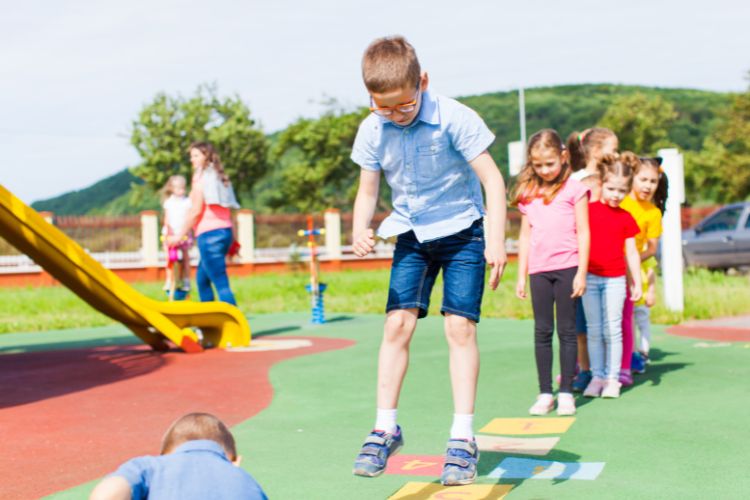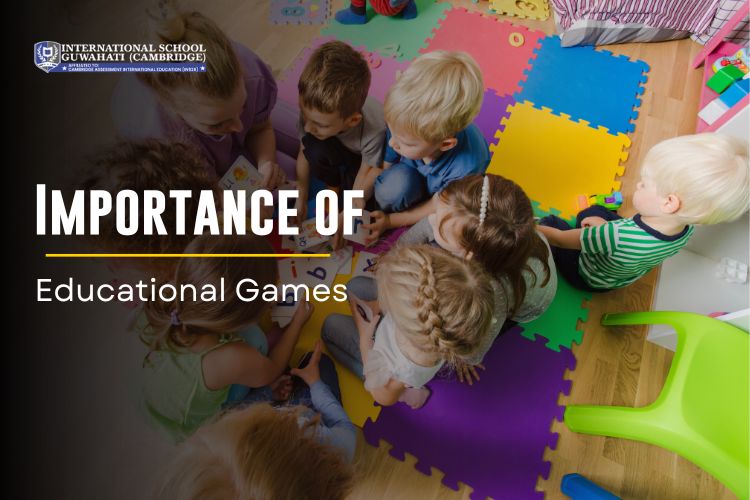![]()
The importance of games in education makes it a powerful tool for learning to teach students specific concepts or skills in a fun and engaging way. They can be used to teach a wide range of subjects, including math, science, reading, writing, and history. Using educational games can teach important life skills, such as problem-solving, teamwork, and critical thinking.
In this blog, we will delve deep into the importance of games – and explore how they cater to the needs of students in 21st century education.
What are Educational Games?

One of the primary goals of educational games is to facilitate effective student learning. Educational games, specifically designed for learning purposes, have gained tremendous popularity in recent years. These games for students combine entertainment and education, making the learning experience more engaging and effective. They often feature compelling narratives, interactive challenges, and rewards to motivate the students. When students see their progress, earn points, or compete with their peers, they are more inclined to invest time and effort into the learning process.
Educational Games for kids
There are many educational games available for kids of all ages. Here are a few examples:
For preschoolers: Preschoolers can enhance their early childhood understanding by engaging in various plays to recognize alphabets, numbers, shapes and colors.
For elementary school students: Students can expand their knowledge in various subjects and make learning interesting.
To take an instance, there are games designed to facilitate learning multiplication facts, recognizing various rock types, or enhancing reading comprehension skills.
For middle school students: To acquire more advanced concepts and skills through the utilization of these games by teachers.
For high school students: To simplify concepts in various subjects like science, mathematics and or physics.
The importance of games aligns well with the goals of 21st-century education. They encourage students to think critically, make decisions, and apply knowledge in practical situations. While games in education is evident, it’s essential to strike a balance between play and learning. Educational games should not replace traditional teaching methods entirely but rather complement them. They can serve as valuable tools for reinforcing concepts learned in the classroom.
Also Read: Amazing Benefits of Classroom Games.
How Can Teachers Use Games in the Classroom?

Quoting Albert Einstein’s, “Play is the highest form of research,” to highlight the importance of games. It provide students with the opportunity to explore, experiment, and learn from their mistakes. Whether it’s a board game, a digital simulation, or a physical activity, games encourage active participation and foster a love for learning. Teachers can introduce educational games that align with their curriculum to make learning more enjoyable.
Teachers can use games in the classroom in a variety of ways. Here are a few ideas:
Use games to introduce new concepts: For instance, math teachers can use card games to help students improve their arithmetic skills, while history teachers can organize historical trivia quizzes or simulation games to bring the past to life. By applying what they’ve learned in a fun context, students are more likely to remember and understand the material.
Use games to enhance Collaboration and Communication
Cooperative games, team-based activities, and group challenges require students to work together, communicate effectively, and leverage each other’s strengths. This not only helps students build stronger relationships but also prepares them for future teamwork in various aspects of life.
Use games to practice skills.
Games can be used to help students practice skills that they have already learned. For example, a teacher could use a reading game to help students practice their reading comprehension skills.
Use games to assess students learning.
Games can be used to assess student learning in a fun and engaging way. For example, a teacher could use a science game to assess students’ understanding of a science concept.
Cambridge International School Guwahati (CISG) fosters creative learning by implementing games and extracurricular activities in the school curriculum. CISG goes beyond traditional teaching methods to foster creative learning. By integrating games and extracurricular activities into their curriculum, they prepare students for academic excellence and equip them with the skills and experiences necessary to excel in all aspects of life.
The Bottom Line
Educational games have the power to transform learning experiences. They tap into a child’s innate curiosity and desire to explore the world around them, making learning a joyful experience.
By utilizing the educational benefits of games, we can prepare students to thrive in a world that demands creativity, critical thinking, adaptability, and collaboration. So, let us emphasize on the importance of games and continue to discover new ways to make learning a truly enjoyable and enriching journey for our students.
Also Read: How to Teach and Take Care of Specially Abled Children?











2 Responses
Hey There. I discovered your blog using msn. That is a very neatly written article. I’ll make sure to bookmark it and come back to read more of your useful information. Thanks for the post. I’ll certainly comeback.
Thank you so much for your kind words. Will keep updating the blog, make sure you get the updates!